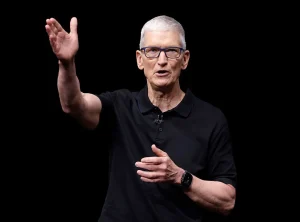
In the rapidly evolving landscape of technology, the rise of artificial intelligence (AI) has sparked intriguing debates about its potential impact on various industries. One of the most prominent discussions revolves around the role of AI in software engineering. As AI continues to advance at an unprecedented pace, many wonders: Will artificial intelligence eventually replace software engineers?
In this blog, we'll delve deep into this thought-provoking question, exploring the current state of AI in software development, its potential implications for the future of the profession, and the indispensable human elements that ensure the enduring relevance of software engineers.
The Current Landscape:
To understand the potential for AI to replace software engineers, it's crucial to grasp the current capabilities of artificial intelligence in software development.
AI has already made significant inroads in automating various aspects of the software development lifecycle. From code generation and debugging to testing and optimization, AI-powered tools and platforms are increasingly augmenting the work of software engineers, streamlining processes, and enhancing productivity.
For instance, companies like OpenAI have developed AI models capable of generating code based on natural language descriptions, significantly reducing the time and effort required for software development tasks. Additionally, AI-driven testing tools can identify bugs and vulnerabilities more efficiently than traditional methods, leading to higher-quality software products.
Implications for the Future:
Given these advancements, it's natural to speculate about the future role of software engineers in a world increasingly shaped by AI. Will software engineers become obsolete, replaced by algorithms and automation?
While AI undoubtedly has the potential to automate certain routine tasks within software development, the essence of software engineering goes far beyond mere code generation. Software engineers bring a unique blend of creativity, problem-solving skills, and domain expertise to the table—qualities that are challenging to replicate with AI alone.
Moreover, software development is inherently collaborative, requiring effective communication, teamwork, and understanding of user needs—all of which rely on human ingenuity and intuition. While AI can assist in various aspects of the development process, it cannot fully replace the human element that drives innovation and fosters meaningful connections with users.
The Role of Creativity and Innovation:
One of the defining characteristics of software engineering is its reliance on creativity and innovation. Software engineers are not just code monkeys; they are architects of digital solutions, tasked with designing elegant, efficient, and user-centric software systems.
While AI algorithms can analyze vast datasets and identify patterns, they lack the capacity for genuine creativity and innovation. The ability to think outside the box, envision novel solutions to complex problems, and adapt to evolving technological trends is quintessentially human—and it lies at the heart of software engineering.
Furthermore, software development often involves grappling with ambiguity and uncertainty, navigating trade-offs, and making decisions in complex, real-world contexts. These are challenges that require human judgment, intuition, and ethical considerations—qualities that AI, as powerful as it may be, cannot fully replicate.
The Importance of Human-Centered Design:
Another critical aspect of software engineering that distinguishes it from AI-driven automation is its focus on human-centered design. Effective software development goes beyond writing code; it involves understanding user needs, empathizing with end-users, and creating intuitive, user-friendly interfaces.
While AI can analyze user data and provide insights, it lacks the human touch needed to truly understand the nuances of human behavior and preferences. Software engineers play a pivotal role in bridging the gap between technology and users, ensuring that software systems are not just functional but also delightful to use.
Moreover, software development is an iterative process, requiring continuous feedback and refinement based on user interactions and evolving requirements. This iterative cycle of design, implementation, and feedback relies on human judgment and creativity to drive meaningful improvements and innovations.
The Collaborative Nature of Software Development:
Software engineering is inherently collaborative, involving cross-functional teams working together to deliver software solutions that meet the needs of users and stakeholders. From product managers and designers to software developers and quality assurance engineers, each team member brings unique perspectives and skills to the table.
While AI can automate certain tasks within the software development lifecycle, it cannot replace the collaborative dynamics and synergy that emerge from human interaction. Effective collaboration relies on communication, empathy, and shared goals—all of which are quintessentially human traits.
Furthermore, the diversity of perspectives within interdisciplinary teams fosters innovation and resilience, enabling software engineers to tackle complex challenges and adapt to changing circumstances. While AI can augment individual tasks, it is unlikely to replicate the richness of human collaboration and teamwork.
Ethical and Societal Implications:
In addition to technical considerations, the potential for AI to replace software engineers raises important ethical and societal questions. As AI systems become increasingly sophisticated, concerns about job displacement, algorithmic bias, and ethical implications loom large.
While AI-driven automation has the potential to enhance productivity and efficiency, it also poses risks of exacerbating inequality, widening the digital divide, and reinforcing existing power imbalances. Moreover, the widespread adoption of AI in software development raises concerns about data privacy, security, and the responsible use of technology.
As stewards of technology, software engineers have a crucial role to play in shaping the ethical and societal implications of AI. By integrating ethical considerations into the design and implementation of software systems, software engineers can help mitigate potential harms and ensure that AI serves the collective good.
The Human Element: Ensuring the Enduring Relevance of Software Engineers:
In conclusion, while AI holds immense promise for automating certain aspects of software development, the role of software engineers remains indispensable. Software engineering is not just about writing code; it's about solving complex problems, designing elegant solutions, and creating meaningful connections with users.
The human element—creativity, innovation, empathy, and collaboration—is what distinguishes software engineering from AI-driven automation. While AI can augment individual tasks within the software development lifecycle, it cannot replace the holistic, human-centered approach that software engineers bring to the table.
As we navigate the increasingly complex and interconnected world of technology, it's essential to recognize the enduring relevance of software engineers and the indispensable contributions they make to shaping the future of software development.
References:
- OpenAI Codex: Learn more about OpenAI's Codex, an AI model capable of generating code based on natural language descriptions.
- IEEE Spectrum - Will AI Replace Software Engineers?: Explore this article from IEEE Spectrum discussing the potential impact of AI on software engineering.
- Harvard Business Review - The Jobs That Artificial Intelligence Will Create: Read this Harvard Business Review article on the new opportunities AI may create for workers in various industries.
- World Economic Forum - The Future of Jobs Report: Check out the World Economic Forum's report on the future of jobs, which explores the impact of technological disruptions on the labor market.
By embracing the synergy between human ingenuity and AI-driven automation, we can harness the full potential of technology to build a more inclusive, innovative, and sustainable future.







